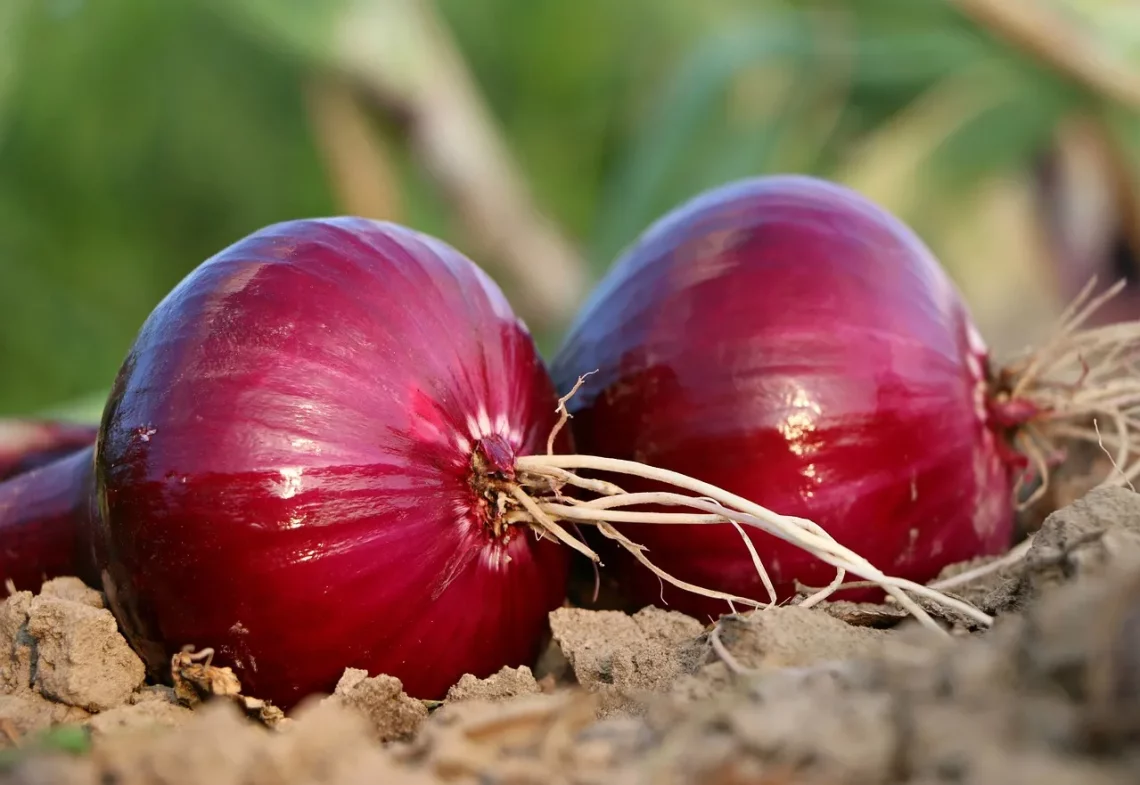
Red Onion Nutritional Information: Health Benefits and Facts
Red onions are often overlooked in the vast world of vegetables, yet they offer a plethora of nutritional benefits and culinary versatility. With their rich, vibrant color and distinct flavor, red onions have secured their place in kitchens around the globe. They not only enhance the taste of various dishes but also contribute significantly to health and wellness.
These onions are a staple in many cuisines, providing not just flavor but also essential nutrients that can support overall health. Their unique taste profile ranges from sweet to slightly pungent, making them a suitable ingredient for salads, sandwiches, salsas, and cooked meals. Furthermore, they are packed with antioxidants, vitamins, and minerals, which are integral to a balanced diet.
As we delve deeper into the nutritional profile of red onions, it becomes increasingly clear why they deserve a spot on your plate. Understanding what these vibrant bulbs bring to the table can help you make informed dietary choices that promote health and well-being.
Nutritional Profile of Red Onions
Red onions are not just a colorful addition to your meals; they are a powerhouse of nutrition. A medium-sized red onion typically contains about 45 calories, making it a low-calorie food that can easily fit into a healthy diet. They are composed mainly of water, which accounts for about 90% of their weight, and they are low in carbohydrates and fats.
When it comes to vitamins and minerals, red onions are particularly high in Vitamin C, which plays a vital role in immune function, skin health, and the absorption of iron. One medium onion can provide around 7% of the daily recommended intake of Vitamin C. Additionally, they are a good source of B vitamins, such as B6 and folate, which are essential for energy metabolism and red blood cell formation.
Another notable aspect of red onions is their high content of antioxidants. Quercetin, a powerful flavonoid found in red onions, has been linked to various health benefits, including anti-inflammatory and anti-cancer properties. Antioxidants help combat oxidative stress in the body, reducing the risk of chronic diseases like heart disease and cancer.
Red onions also contain dietary fiber, which is crucial for digestive health. Fiber helps regulate bowel movements, prevents constipation, and supports a healthy gut microbiome. Including red onions in your diet can contribute to your daily fiber intake, promoting overall digestive health.
In summary, red onions are not only flavorful but also provide a wide array of essential nutrients that can enhance your health. Including them in your meals can be a simple way to boost your nutrient intake while enjoying delicious flavors.
Health Benefits of Red Onions
The health benefits of red onions extend beyond their nutritional profile. These versatile vegetables have been linked to numerous health advantages that can contribute to a healthier lifestyle.
One of the most significant benefits of red onions is their potential role in heart health. The antioxidants, particularly quercetin, found in these onions can help lower blood pressure and reduce the risk of heart disease. Quercetin has been shown to improve blood vessel function, enhancing circulation and reducing inflammation. Including red onions in your diet may help maintain healthy cholesterol levels and prevent the buildup of arterial plaque.
Additionally, red onions are known for their anti-inflammatory properties. Chronic inflammation is a contributing factor to many diseases, including diabetes, heart disease, and certain cancers. The compounds found in red onions can help reduce inflammatory markers in the body, potentially lowering the risk of these conditions.
Another noteworthy health benefit is the potential anti-cancer properties of red onions. Some studies suggest that the antioxidants and sulfur compounds in red onions may inhibit the growth of cancer cells and reduce the risk of certain types of cancer, including colorectal and gastric cancers. While more research is needed, incorporating red onions into a balanced diet may offer protective effects against cancer.
Moreover, red onions can support bone health. They contain compounds that may help increase bone density and reduce the risk of osteoporosis. This is particularly beneficial for older adults, as maintaining strong bones is crucial for overall health and mobility.
Incorporating red onions into your diet can be an easy and delicious way to reap these health benefits. Whether you enjoy them raw in salads or cooked in various dishes, their versatility makes them a valuable addition to any meal.
Culinary Uses of Red Onions
Red onions are incredibly versatile and can be utilized in a variety of culinary applications. Their sweet and slightly tangy flavor pairs well with many ingredients, making them a staple in numerous cuisines worldwide.
One of the most popular ways to use red onions is in salads. Their vibrant color and crisp texture add a refreshing element to green salads, pasta salads, and grain bowls. Slicing them thinly and soaking them in vinegar or lemon juice can mellow their sharpness, transforming them into a delicious topping for salads and sandwiches.
Red onions are also excellent for grilling. When grilled, they develop a sweet, caramelized flavor that enhances the taste of burgers, steaks, and vegetable skewers. Simply slice them into thick rings and place them on the grill for a few minutes until they are tender and slightly charred.
In addition to salads and grilling, red onions can be incorporated into salsas and relishes. Their unique flavor profile complements tomatoes, peppers, and cilantro, creating a vibrant and zesty topping for tacos, grilled meats, or chips.
Another popular use for red onions is in stir-fries. Their firm texture holds up well to high heat, making them a perfect addition to stir-fried vegetables, noodles, or rice dishes. Sautéing red onions with garlic and other vegetables can create a flavorful base for a variety of meals.
Finally, red onions can also be pickled, which adds a tangy crunch to sandwiches, burgers, and charcuterie boards. Quick pickling can be done by soaking sliced red onions in vinegar, water, and sugar for a short time, resulting in a delicious condiment that elevates any dish.
In conclusion, the culinary possibilities with red onions are endless. Their unique flavor, vibrant color, and numerous health benefits make them a valuable ingredient in any kitchen.
Conclusion
Incorporating red onions into your diet can provide a multitude of health benefits while enhancing the flavors of your meals. With their impressive nutritional profile, including vitamins, minerals, and antioxidants, these vibrant vegetables can contribute to heart health, reduce inflammation, and potentially lower the risk of cancer.
Their culinary versatility allows them to be used in a variety of dishes, from salads to salsas and everything in between. Whether you enjoy them raw, grilled, or pickled, red onions can add a delightful crunch and flavor to your meals.
As with any dietary changes, it is essential to consult with a healthcare professional, especially if you have specific health concerns or conditions. The information provided in this article is not intended as medical advice, and individuals should seek guidance from a qualified healthcare provider for personalized recommendations.
Incorporate red onions into your meals to enjoy their health benefits and delicious taste, and make this humble vegetable a staple in your kitchen.




